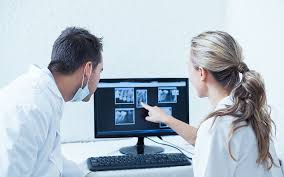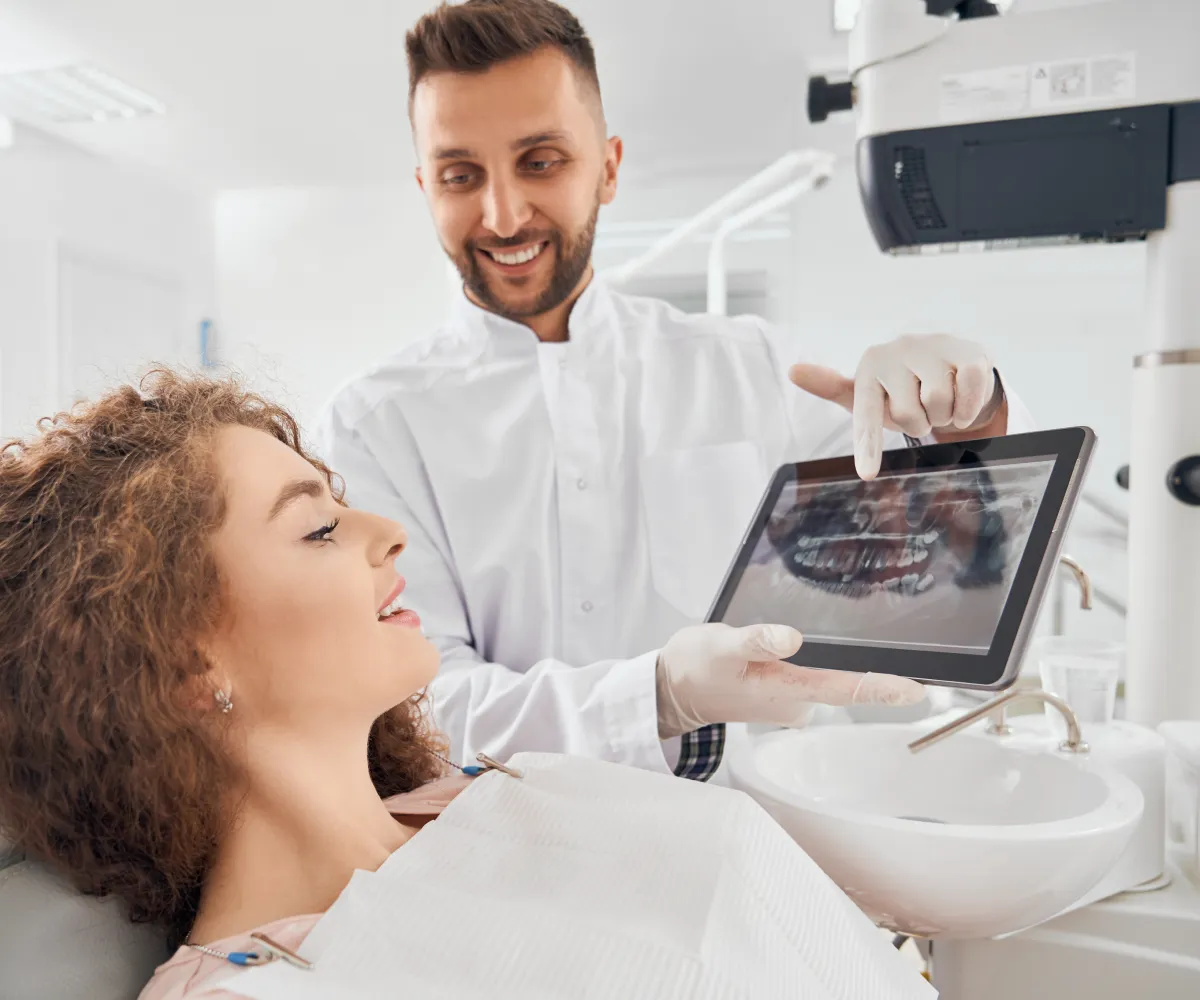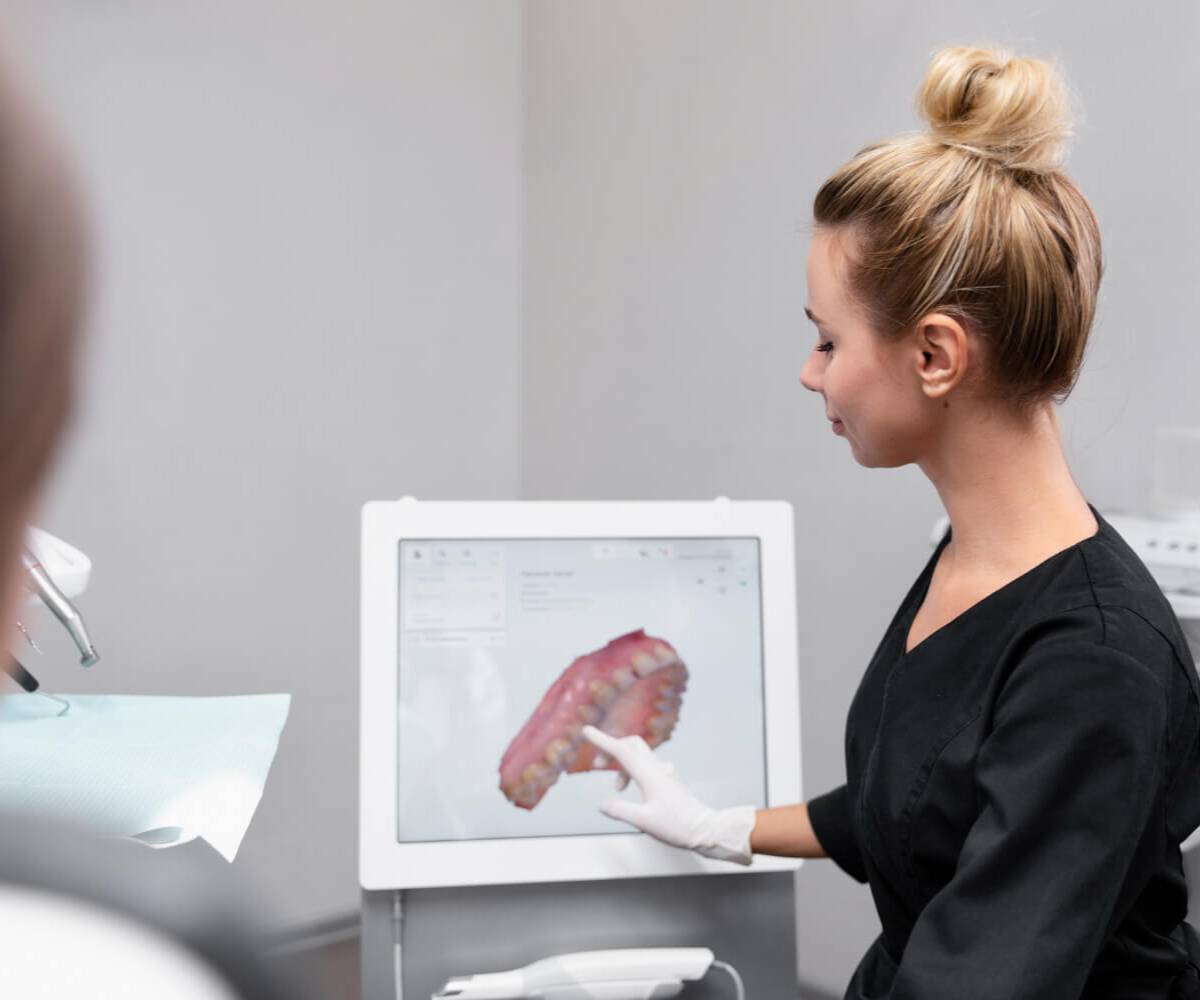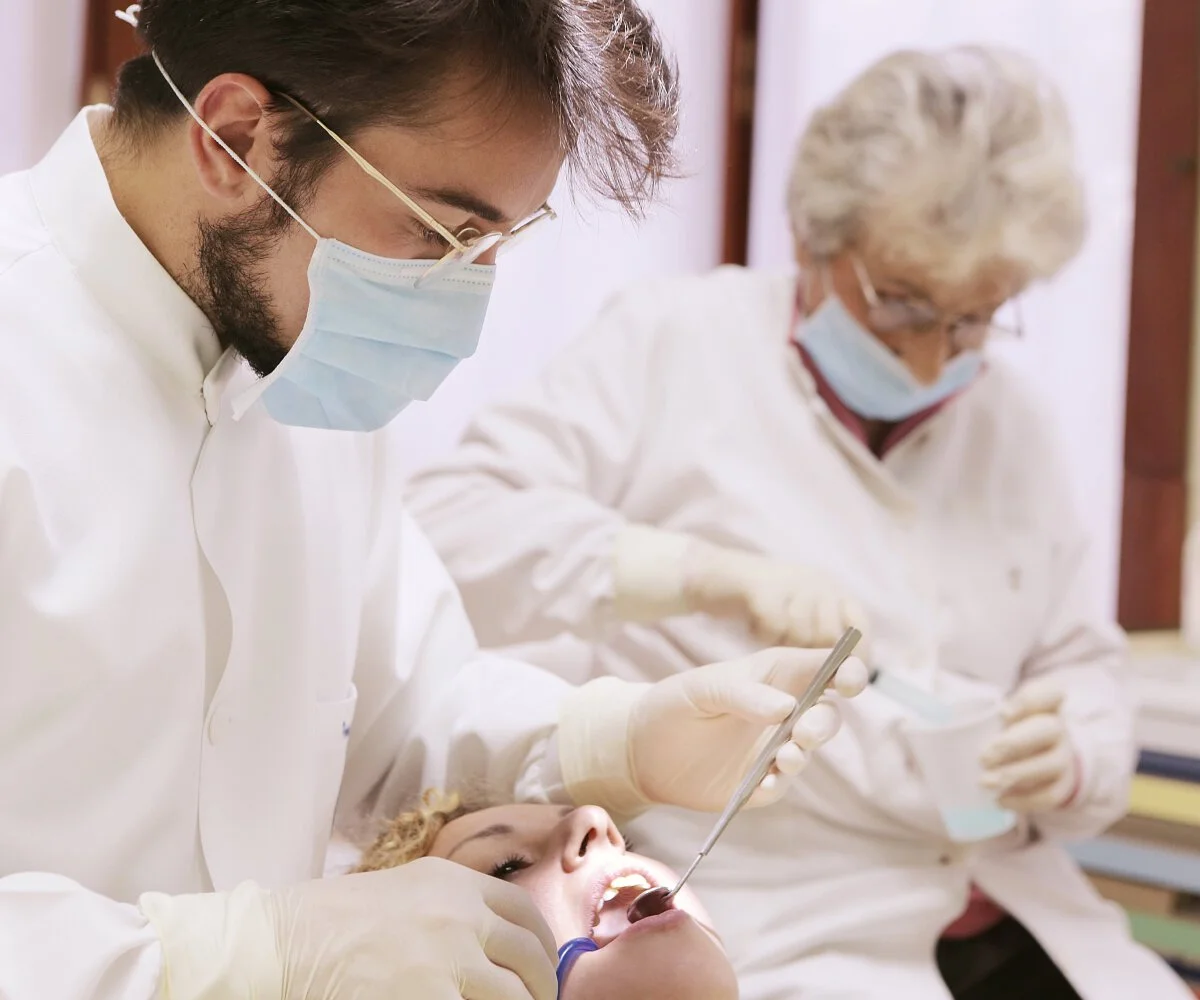The Future of Dental Diagnostics: Exploring AI Radiography Advancements
1. Introduction:
In today's world, technological advancements in the field of dentistry are gaining momentum, poised to revolutionize diagnostic processes and patient care. Dental radiographs play a vital role in diagnoses, offering significant insights into the oral health of patients. However, traditional radiography methods might sometimes prove inadequate, and this is where artificial intelligence (AI)-based radiography advancements come into play.
Now, artificial intelligence and machine learning are being integrated into radiography practices in dentistry, presenting significant potential to enhance the accuracy, speed, and patient care in diagnoses. Let's delve deeper into the future of AI-assisted radiography technology in dental diagnoses and the advantages it brings.
2. Integration of AI into Radiography and Dental Diagnosis:
Artificial intelligence is creating a significant revolution in the field of dentistry. Specifically, the amalgamation of AI with radiography technology is transforming dental diagnosis and treatment planning processes. Advancements in this technology offer a more effective and rapid diagnostic process, surpassing the limitations of traditional radiography methods.
3. Role of AI-Supported Radiography in Diagnoses:
AI provides unique capabilities in analyzing dental radiographs. While traditional radiography methods rely on dentists examining images, AI-supported radiography processes these images to aid in identifying specific conditions and making diagnoses. Presentations on AI in radiology, such as technology-enabled PowerPoint slides, can introduce such advancements to a broader audience.
This technology assists dentists in achieving more precise results and formulating treatment plans. AI radiology companies publish research and developments supporting this technology in medical imaging via AI-powered PDF documents, providing crucial insights into the latest innovations and practices within the industry.
AI's impact on radiography enables the detection of early-stage issues in patients and unveils conditions that might have been overlooked previously. Advanced technologies like full-frame radiology, when combined with AI, allow for more accurate and faster identification of such conditions, leading to a more effective and successful treatment process.
These technological advancements alleviate the workload of dentists while enhancing patient satisfaction. Swift diagnoses and more effective treatment plans not only reduce patients' exposure to radiation but also contribute to their overall health and safety.
4. Advantages and Changing Dental Practices:
AI-supported radiography offers various advantages in dental practice. One of these is the increased speed in the diagnostic process. Compared to traditional methods, AI-supported radiography allows for faster analysis of images, enabling quicker initiation of patients' treatment processes.
Additionally, AI-supported radiography enhances the accuracy of diagnoses. This technology supports dentists in examining images to obtain more precise results, reducing false positives or negatives and thus ensuring stronger foundations for treatment plans.
These technological advancements not only ease the workload of dentists but also increase patient satisfaction. Swift diagnoses and more effective treatment plans not only reduce patients' exposure to radiation but also contribute to their overall health and safety.
5. AI-Supported Radiography and Education:
Educational processes in the field of dentistry play a crucial role in the adoption of AI-supported radiography technology. Students should familiarize themselves with this technology early on and have access to current information regarding developments in this field. Dental faculties should incorporate AI-supported radiography technology into their curricula to equip students with knowledge about these innovations. This will enable graduating dentists to start their careers with a more up-to-date and advanced perspective on the profession.
6. The Future of Dental Practice and AI:
AI-supported radiography not only impacts the diagnostic processes in dental practice but also influences treatment planning and patient management. In the future, this technology could evolve further with the use of more personalized patient data to create personalized treatment plans. This could lead to more effective and tailored care for patients, enhancing overall oral health.
The potential of AI-supported radiography technology in the field of dentistry is continuously being explored and developed. This technology provides dentists with a wide range of tools and resources to better serve their patients.
7. The Future of AI and Radiography Integration:
The future of AI-based radiography technology appears promising. Continuously evolving algorithms and AI systems fed with more data will ensure even greater precision in diagnoses. This will enable dentists to provide more effective and personalized treatment plans for their patients.
However, there are some challenges associated with the widespread adoption of AI-supported radiography technology. Concerns may arise, particularly regarding the adequate training of this technology and issues related to reliability. Nevertheless, these challenges can be overcome through continual supervision and development.

8. Advantages of AI-Supported Radiography:
AI-supported radiography not only enhances the accuracy of diagnoses but also has the potential to expedite the diagnostic process. AI can analyze X-ray images to detect various dental issues, providing dentists with a clearer and more comprehensive perspective. Early detection of issues makes the treatment process more effective, improving overall patient health.
Furthermore, AI-supported radiography increases patient satisfaction. Swift diagnoses and more accurate treatment plans not only reduce invasive procedures but also minimize radiation exposure, thus enhancing the overall treatment process.
9. Impact of AI on Dental Practice:
The integration of AI and radiography enables dentists to make data-driven decisions during the diagnostic process. This allows for personalized treatment planning and better focus on the specific needs of patients. Moreover, this technology might assist dentists in evaluating their patients from a broader perspective based on larger datasets.
However, concerns exist regarding the use of AI-supported radiography technology. Particularly, the quality and diversity of data used in algorithm training are crucial. Lack of diversity in datasets or biased data usage might affect the accuracy of algorithms, thereby reducing the reliability of diagnoses.
10. The Future and Potential of AI:
In the future, AI-supported radiography technology could further evolve. Improved algorithms and AI systems fed with more data might enhance diagnostic accuracy and detect more specific dental conditions.
However, the ethical and legal dimensions of these technological advancements should not be overlooked. Aspects like patient confidentiality, data security, and ethical boundaries of AI usage need continuous consideration.
11. Accessibility and Cost Implications:
As AI-supported radiography technology becomes more widespread, its accessibility and cost become significant considerations. The proliferation of advanced technologies should ensure availability in various clinical settings and maintain reasonable costs. This could enhance the usability of this technology across a spectrum of healthcare facilities, benefiting a broader range of patients.
12. Patient Data Protection and Security:
The confidentiality of patient data becomes increasingly critical with the use of technologies like AI-supported radiography. While this technology processes vast amounts of sensitive patient data, ensuring data security and privacy is of paramount importance. This is crucial not only for patient safety but also for developing standards in data management and storage.
13. Ethical and Privacy Issues:
Ethical and privacy concerns related to the use of artificial intelligence should also be considered. The analysis of medical images like radiography may contain patients' private information, emphasizing the significant importance of securing this data. Therefore, particular attention should be paid to patient privacy and data security when using AI-based radiography technology.
14. Conclusion:
AI-supported radiography in dental diagnoses is bringing about significant changes in dental practice. This technology offers advantages such as more accurate diagnoses, rapid treatment planning, and increased patient satisfaction. However, ethical and privacy considerations concerning the use of technology should be continuously taken into account.
In the future, advancements in AI and radiography technologies seem poised to bring further innovation in the field of dentistry. These developments will contribute positively to overall oral health by providing patients with more effective, reliable, and personalized treatment plans.
In this article, we've presented an overview of the role and future of AI-supported radiography technology in dental diagnoses. With further advancements and discoveries, dental practice will continue to leverage the advantages of technology to better serve patients.





 Contact Us
Contact Us

